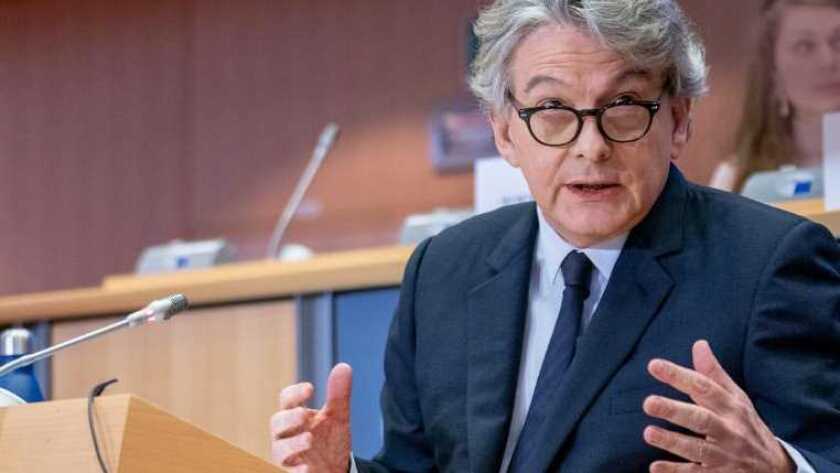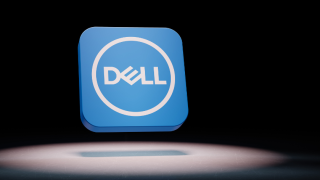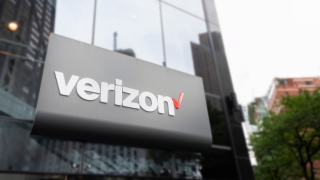The 27-nation group said yesterday that space-based connectivity is “a strategic asset” for its resilience: “It enables our economic power, digital leadership and technological sovereignty, competitiveness and societal progress.”
The EU said that security will be one of the main differences from competing low Earth orbit (LEO) systems, “relying on quantum cryptography through the EuroQCI, and enhanced cybersecurity through a secure-by-design approach for the infrastructure”.
The EuroQCI initiative, which dates back to 2019, “aims to build a secure quantum communication infrastructure that will span the whole EU, including its overseas territories”, according to a separate EU document.
The force behind the LEO proposal, which has already been questioned by its Regulatory Scrutiny Board, is Thierry Breton (pictured: European Union, CC-BY-4.0), the former France Télécom CEO who has been the EU’s commissioner for the internal market since 2019.
He said: “Our new connectivity infrastructure will deliver high-speed internet access, serve as a back-up to our current internet infrastructure, increase our resilience and cyber security, and provide connectivity to the whole of Europe and Africa.”
Airbus, SES and Eutelsat will carry out a technical study. An Airbus joint venture is building all the satellites for OneWeb, a rival LEO company whose main backers are Bharti of India, Eutelsat of France and the UK government.
Details of the new satellite project are scant so far. The EU said in an accompanying document: “This initiative will offer mobile and fixed broadband satellite access, satellite trunking for B2B services, satellite access for transportation, reinforced networks by satellite and satellite broadband and cloud-based services.
“It can support edge computing, internet of things, autonomous driving, e-health, smart working and education, in-flight and maritime connectivity, and smart agriculture.”
Breton added: “It will be a truly pan-European project allowing our many start-ups and Europe as a whole to be at the forefront of technological innovation.”
The EU said that the total cost is estimated at €6 billion, of which the EU will contribute €2.4 billion at current prices between now and 2027. Sources of other funds include member states, the European Space Agency (ESA) and private sector investments. The EU said: “A public-private partnership (PPP) is the preferred option.”
The EU said that, for security reasons, the project would be restricted to EU-based organisations, a move that would exclude the UK and other non-EU bodies. “Any critical dependence on non-EU satellite communication infrastructure would be detrimental to the integrity, resilience and sustainability of the Union’s operations.”
Margrethe Vestager, the EU’s executive vice-president, said: “Space technology is essential for our everyday life and security. … It will play a key role in Europe’s digital transformation. And make us more competitive.”
At the same time as backing the low Earth orbit (LEO) project, the alliance said it supports an EU approach on space traffic management.
It said: “Thee resilience and safety of EU and member states’ space assets are at serious risk. It is critical to protect the long-term viability of space activities by ensuring that space remains a safe, secure and sustainable environment.”
Vestager said: “I hope that an EU approach to space traffic management and space technology will guarantee a safe and sustainable use of space in the long run.”
Breton, the main backer of the project, was chairman and CEO of Orange – when it was still France Télécom – from 2002 to 2005. He then went into politics as France’s minister of economy, finance and industry, when Jacques Chirac was French president. He later became CEO of Atos.






